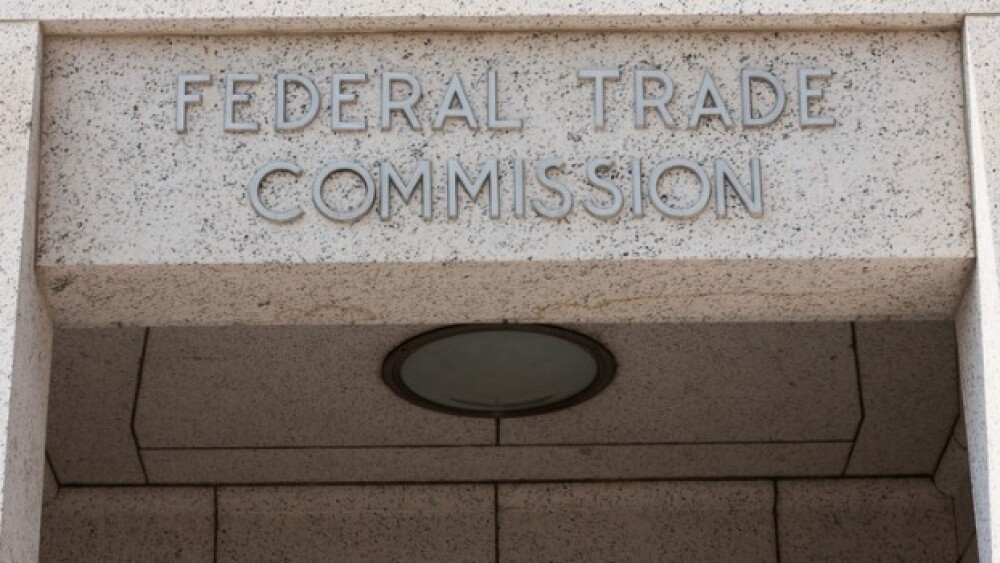The Federal Trade Commission is asking for more information regarding Pfizer’s planned $43 billion acquisition of Seagen, according to the latter’s Securities and Exchange Commission filing on Friday.
Pictured: FTC sign above a doorway/iStock, Gromit702
The Federal Trade Commission has requested additional information on Pfizer’s proposed acquisition of Seagen, the cancer-focused biotech revealed in a Securities and Exchange Commission filing posted Friday.
In the SEC document, Seagen disclosed that the FTC’s request will further extend the waiting period, as mandated by the Hart-Scott-Rodino Antitrust Improvements Acts of 1976, by 30 days after both Pfizer and Seagen have turned over the additional information.
The companies still expect to close the deal this year or in early 2024, subject to regulatory approvals. Pfizer and Seagen have also sought approval for the planned acquisition from the European Commission.
Rumors of a Seagen buyout first started circulating in June 2022, when the company reportedly entered into talks with Merck. The negotiation progressed to advanced stages a month later, with Merck proposing a payout of at least $200 per share, which would have made the acquisition worth $40 billion.
However, by August 2022, Seagen’s talks with Merck had reached a stalemate as both companies failed to agree on a deal price.
The deal with Merck eventually fizzled out and in February 2023 news that Pfizer was courting Seagen surfaced. The companies confirmed the rumors a month later, announcing that the Washington-based biotech agreed to a purchase price of $229 per share or $43 billion, making it one of the biggest deals ever in biotech.
In June 2023, Seagen announced in an SEC filing that Pfizer withdrew its initial application with the FTC, but refiled a similar document later the same day.
Regulators have recently increased scrutiny on high-value deals. In May 2023, the FTC filed a lawsuit that sought to block the planned $28 billion merger between Amgen and rare disease leader Horizon Therapeutics.
The regulator’s chief concern is that Amgen might offer “cross-market bundles or bundled rebates” and leverage its blockbuster assets to win better formulary placements for Horizon’s Tepezza (teprotumumab-trbw) and Krystexxa (pegloticase).
Holly Vedova, director of the FTC Bureau of Competition also said in a statement released alongside the lawsuit that “rampant consolidation” in the industry has emboldened pharmaceuticals companies to jack up drug prices and keep generic competitors out of the market, which in turn makes affordable medicines less accessible to patients.
Amgen has called the FTC’s bundling concerns “entirely speculative” and earlier this month the two companies filed a counter suit against the regulator, claiming that its blockage of the acquisition is unconstitutional.
Tristan Manalac is an independent science writer based in metro Manila, Philippines. He can be reached at tristan@tristanmanalac.com or tristan.manalac@biospace.com.






